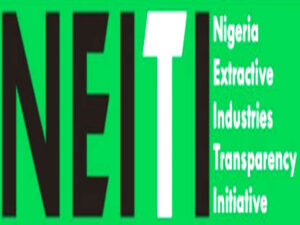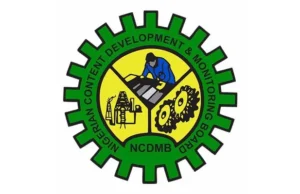The Nigerian Upstream Petroleum Regulatory Commission (NUPRC) has underscored the importance of maintaining investment opportunities in the deep-water oil fields as it plays significant role in securing the nation’s energy future.
The Commission said however the nation is taking a more holistic collective responsibility in shaping the future of Nigeria’s energy destiny and plans to accelerate exploration in frontier basins, expand competitive licensing rounds, and maintain strict enforcement of flare reduction and emissions compliance.
Speaking on the topic: “Positioning Nigeria’s Upstream Oil & Gas for Energy Security, Sustainability and Economic Resilience”, at the Nigeria Oil and Gas (NOG) Week in Abuja, the Chief Executive of the commission, Gbenga Komolafe, observed that oil and gas have continued to supply over 50 per cent of global energy needs, a figure expected to hold through 2050, noting that S&P recently noted that sustaining this demand will require $640 billion in annual upstream investment through 2030 and over $4 trillion cumulatively.
Failure to meet this demand, Komolafe said, will threaten global stability, with global demand remaining strong.
Under the leadership of President Bola Tinubu, he stated that Nigeria is undergoing a historic energy sector transformation, enhanced by a number of Executive Orders, reiterating that over $16 billion has been committed to the sector in just two years.
“Through the Project One Million Barrels initiative, we are scaling up Nigeria’s production through reawakening of dormant fields, acceleration of approvals, enhancement of upstream efficiencies etc. Launched in 2024, the initiative targets an increase from 1.46 million to 2.5 million barrels per day by 2026. With 1.7 million bpd already achieved, the strategy is yielding results.
“Protection of assets is also paramount. With 37 new evacuation routes approved and working closely with security agencies, we are curbing theft and boosting accountability. Meanwhile, our drive on Domestic Crude Supply Obligation (DCSO) is guaranteeing feedstock for local refineries, strengthening domestic supply chains and economic resilience.
“On the social front, our HostComply platform has brought transparency, real and measurable benefits to oil-producing communities, fostering peace and social license to operate. At the same time, our full-scale digitisation efforts are transforming regulatory oversight, delivering speed, efficiency, and clarity to investors,” Komolafe added.
Komolafe stressed that no strategy is complete without sustainability, explaining that oil and gas remain Nigeria’s economic mainstay, contributing nearly 90 per cent of FX earnings and 70 per cent of national revenue.
“We are determined to entrench climate responsibility at the core of our operations. Nigeria has pledged to achieve net-zero emissions by 2060. It should be known that the NUPRC is turning that ambition into reality.
“Our gas-centric transition strategy, supported by initiatives like the Decade of Gas, the NGFCP, and the Presidential CNG Initiative, aims to eliminate routine flaring by 2030, reduce methane by 60 per cent by 2031, and monetise our vast gas reserves, creating thousands of green jobs in the process.
“Nigeria is building LNG capacity, deploying floating infrastructure, and leading cross-border pipeline development to fuel not only its own economy, but Africa’s industrial renaissance,” he added.
Regionally, the NUPRC, he said, is also leading efforts to integrate Africa’s energy markets, noting that through AFRIPERF, the country is driving regulatory convergence, cross-border financing, and infrastructure interoperability.
“Let it be clear: the commission will not tolerate any producer that undermines this national climate-action programme, nor will it allow unwilling Awardees to set us back. Accordingly, we have taken regulatory action against non-compliant producers who failed to execute agreements after several engagements.
“Our resolve remains firm; we will not relent until the NGFCP is fully and successfully implemented. By next year’s NOG event, we look forward, with optimism, to showcasing operational flare capture projects that reflect our dedication to national and global climate goals,” Komolafe added.
Looking ahead, the commission said it plans to accelerate exploration in frontier basins, expand competitive licensing rounds, and maintain strict enforcement of flare reduction and emissions compliance.
He also revealed that the Host oil communities in the Niger Delta have so far received N98 billion as well as $150 million as their 3 per cent share of the Host Communities Development Fund (HCDF).
Komolafe, stated that this has helped reduce crude theft in the oil-rich region.
At the last count, Komolafe stated that 145 HCDT Trusts had been incorporated in the Niger Delta, with 94 settlers fully involved in the remittances so far.
The 3 per cent community fund, as established under the PIA of 2021, is a mechanism designed to ensure that oil and gas host communities directly benefit from the industry’s operations.
Under the provision, oil and gas companies operating upstream are mandated to contribute 3 per cent of their actual operating expenditure from the previous year into a Host Community Development Trust Fund. The fund is not discretionary.
While the percentage has been criticised by some as inadequate, especially compared to the previously proposed 5 per cent, it marks a significant shift toward structured, legally backed community engagement and development in Nigeria’s oil-producing areas.





